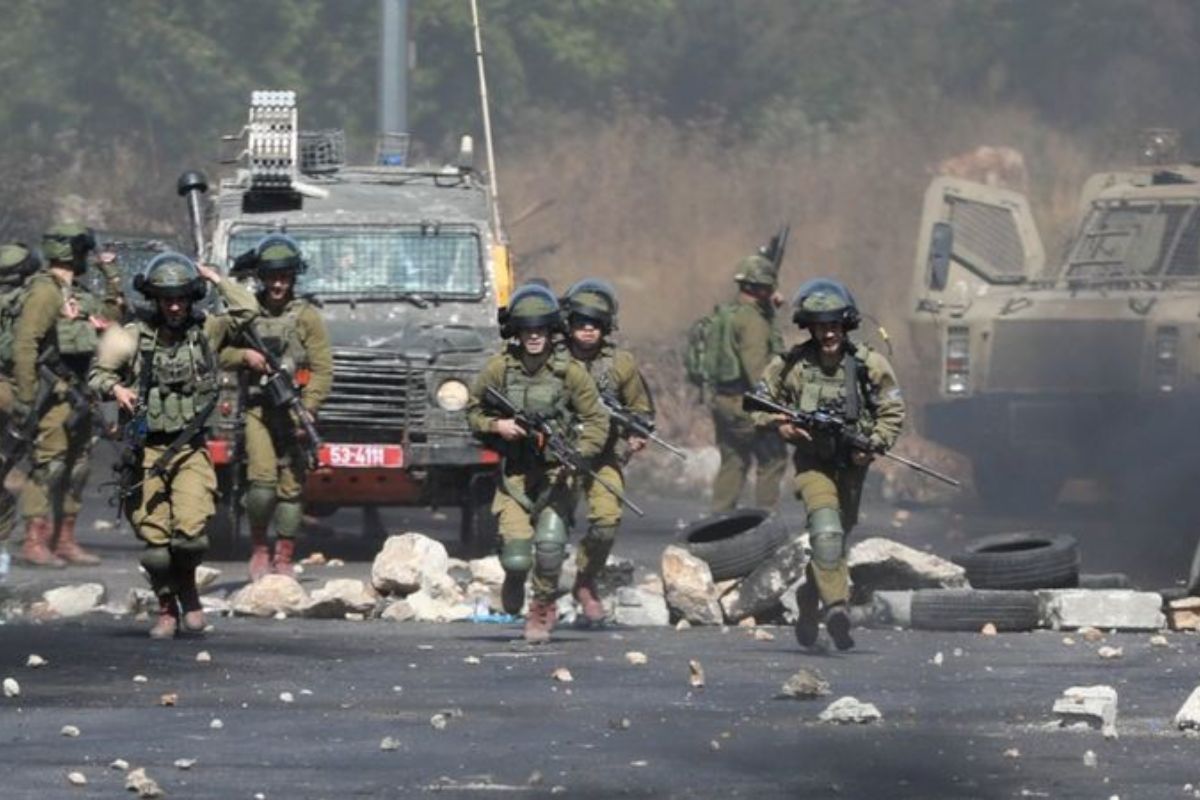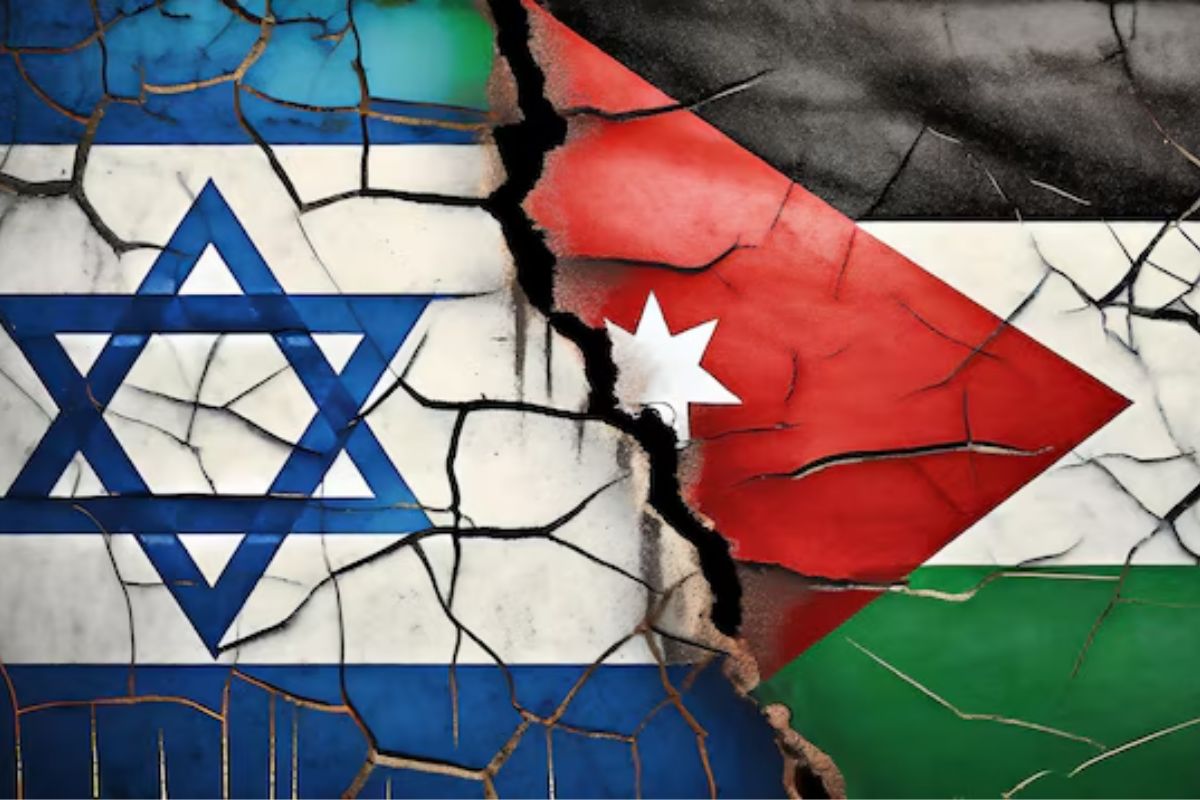For months, Yahya Sinwar has defied demands to reach a cease-fire and hostage deal with Israel. The Hamas military chief in Gaza’s comments to mediators reveal that his choice is based on a calculation that more fighting—and more Palestinian civilian deaths—will benefit him.
We have the Israelis right where we want them, Sinwar claimed in a recent letter to Hamas officials, attempting to negotiate an arrangement with Qatari and Egyptian authorities.

Fighting between Israeli forces and Hamas units in the Gaza Strip’s south has hindered humanitarian aid supplies, resulted in increasing civilian losses, and fueled worldwide criticism of Israel’s efforts to remove the Islamist extremist group.
War in Israel
For much of Sinwar’s political career, formed by a brutal struggle with an Israeli state he claims has no right to exist, he has followed a basic strategy. Backed into a corner, he turns to violence for an escape. The ongoing conflict in Gaza is no exception.
In dozens of texts sent to cease-fire mediators, Hamas sympathizers outside Gaza, and others, Sinwar demonstrated a heartless indifference for human life and stated unequivocally that Israel has more to lose from the war than Hamas. The Wall Street Journal investigated these messages. Multiple persons with different perspectives on Sinwar exchanged messages.
More than 37,000 people have died in Gaza since the conflict began, the majority of them were civilians according to Palestinian sources.
The figure does not indicate how many were combatants. Health officials reported almost 300 Palestinians were murdered Saturday in an Israeli raid that released four hostages held captive in homes surrounded by residents emphasizing for some Palestinians their position as Hamas pawns.
In one communication to Hamas leaders in Doha, Sinwar mentioned civilian casualties in national-liberation struggles like as Algeria, where hundreds of thousands of people perished fighting for independence from France, saying, These are necessary sacrifices.
In an April 11 letter to Hamas political leader Ismail Haniyeh, Sinwar stated that the killings of three of Haniyeh’s adult sons, as well as those of other Palestinians, will “infuse life into the veins of this nation, prompting it to rise to its glory and honor.”
Sinwar is hardly the first Palestinian leader to advocate for bloodshed as a means of applying pressure on Israel. However, the degree of collateral damage in this war—civilians slain and destruction wrought—is unprecedented for Israelis and Palestinians.

Despite Israel’s fierce attempts to murder him, Sinwar has survived and micromanaged Hamas’ war effort, preparing letters, delivering instructions to cease-fire mediators, and deciding whether the US-designated terrorist group ramps up or dials back its strikes.
His ultimate goal appears to be to secure a permanent cease-fire that will allow Hamas to celebrate a historic victory by outlasting Israel and assuming leadership of the Palestinian national struggle.
President Biden is attempting to compel Israel and Hamas to end the war. But Israeli Prime Minister Benjamin Netanyahu is unwilling to permanently stopping the conflict before achieving “total victory” over Hamas.
Even without a long-term peace, Sinwar believes Netanyahu has few options other than to invade Gaza and spend months or years waging a Hamas-led insurgency.
Sinwar foresaw this outcome six years ago, when he initially became Gaza’s leader. Hamas may lose a conflict with Israel, but it would result in an Israeli occupation of more than two million Palestinians.
“For Netanyahu, a victory would be even worse than a defeat,” Sinwar told an Italian writer writing in 2018 in the Israeli daily Yedioth Ahronoth.
Sinwar, now in his early 60s, was about 5 years old when the 1967 war marked his first encounter with severe violence between Israelis and Arabs.
That brief conflict reshaped the Middle East. Israel seized control of the Golan Heights from Syria and the West Bank from Jordan. It also took over Egypt’s Sinai Peninsula and the Gaza Strip where Sinwar grew up in a UN refugee camp.
The conflict was constantly present. Sinwar published a novel in 2004 while in Israeli prison, stating in the preface that it was based on his personal experiences. In the tale a father digs a large trench in the yard of the refugee camp during the 1967 war, then covers it with wood and metal to make a shelter.
A young youngster sits in the hole with his family, wailing and hearing explosions get louder as the Israeli army approaches. The youngster wants to climb out, but his mother yells: “It’s war out there!” “Don’t you understand what war means?”
Sinwar joined the movement that later became Hamas in the 1980s, becoming close to founder Sheikh Ahmed Yassin and establishing an internal-security police force that pursued and executed potential spies, according to a transcript of his confession to Israeli interrogators in 1988.
He earned numerous life sentences for murder and served 22 years in jail before being released in 2011 as part of a trade with a thousand other Palestinians for Israeli soldier Gilad Shalit.
During the negotiations between Israel and Hamas over the Shalit trade, Sinwar was crucial in advocating for the release of Palestinians imprisoned for murdering Israelis.
He wanted to free even those implicated in explosions that killed a huge number of Israelis, and his demands were so extreme that Israel kept him in solitary confinement to prevent him from disrupting progress.
“We only make headlines with blood,” Sinwar told an Italian journalist at the time. “No blood, no news.”
In 2021, reconciliation discussions between Hamas and Palestinian factions appeared to be moving forward, with parliamentary and presidential elections for the Palestinian Authority, the first in 15 years. However at the last minute, Palestinian Authority President Mahmoud Abbas cancelled the polls.
With the political option blocked, Sinwar turned to violence to change the existing quo, firing rockets on Jerusalem amid tensions between Israelis and Palestinians. The ensuing 11-day conflict killed 242 Palestinians and 12 Israelis.
Israeli airstrikes caused so much damage that Israeli officials feared Sinwar would be deterred from attacking Israel again.
But the contrary happened: Israeli officials now believe Sinwar began plotting the October 7 strikes. One goal was to remove the deadlock in settling the Israeli-Palestinian problem and restore its global diplomatic prominence, according to Arab and Hamas officials acquainted with Sinwar’s views.
Israel’s occupation of the Palestinian territories had lasted more than half a century, and Netanyahu’s far-right coalition allies were discussing annexing land in the West Bank that Palestinians desired for their future state. Saudi Arabia, formerly a staunch supporter of the Palestinian cause, was in talks to improve relations with Israel.
Israeli airstrikes caused so much damage that Israeli officials feared Sinwar would be deterred from attacking Israel again.
Though Sinwar planned and authorized the Oct. 7 attacks, early signals to cease-fire negotiators suggest that he was taken aback by the ferocity of Hamas’ armed wing and other Palestinians, as well as their ease in committing civilian murders.
“Things went out of control,” Sinwar wrote in one of his texts, referring to gangs holding civilian women and children as hostages. “People got caught up in this, and that should not have happened.”
This became a talking point for Hamas as they attempted to explain away the civilian casualty count on October 7.
Early in the war, Sinwar focused on using the hostages as a bargaining chip to delay an Israeli ground invasion in Gaza. A day after Israeli soldiers stormed the strip, Sinwar stated Hamas was ready for an immediate arrangement to exchange its hostages for the release of all Palestinian prisoners detained in Israel.
But Sinwar had miscalculated how Israel would react to Oct. 7. Netanyahu claimed that Israel was going to destroy Hamas and that the only way to force the group to release captives was by military action.
Sinwar also appears to have misread Iran’s and Hezbollah’s willingness to provide support.
When Hamas political commander Haniyeh and deputy Saleh al-Arouri visited Tehran in November to meet with Iranian Supreme Leader Ayatollah Ali Khamenei, they were told that Tehran supported Hamas but would not enter the conflict.

“He was partly misled by them and partly by himself,” said Ehud Yaari, an Israeli commentator who has known Sinwar since his time in prison. “He was extremely disappointed.”
By November, Hamas’ political leadership was discreetly distancing themselves from Sinwar, claiming that he carried out the Oct. 7 attacks without their knowledge, according to Arab officials who spoke with Hamas.
At the end of November, Israel and Hamas agreed to a cease-fire and the release of certain captives held by the militants. But the accord crumbled within a week.
As Israel’s army quickly decimated Hamas’ military formations, the organization’s political leadership began meeting with other Palestinian factions in early December to discuss reconciliation and a postwar strategy. Sinwar was not consulted.
Sinwar, in a message to political leaders, condemned the end-around as “shameful and outrageous.”
“As long as fighters are still standing and we have not lost the war, such contacts should be immediately terminated,” he stated. “We have the capabilities to continue fighting for months.
Arouri was murdered in a suspected Israeli strike in Beirut on January 2 prompting Sinwar to alter his communication style, according to Arab officials. He utilized aliases and conveyed notes solely through a few trusted aides and codes, moving between audio, communications spoken to intermediaries, and written messages, they claimed.
Still, his conversations indicate that he began to believe things were going Hamas’ way.
By the end of the month, Israel’s military march had slowed to a tough battle in Khan Younis, Sinwar’s hometown. Israel began losing more troops. On January 23, around two dozen Israeli forces were killed in central and southern Gaza, marking the military’s worst day of the operation.
Disagreements among Israel’s wartime commanders emerged in public, with Netanyahu failing to formulate a postwar governance plan for Gaza and his defense minister, Yoav Gallant, quietly warning against reoccupying the strip. Israelis grew concerned that their country was losing the battle.
In May, Israel threatened to strike Rafah if cease-fire talks failed, which Hamas saw as a negotiating strategy.
Netanyahu stated that Israel needed to expand into Rafah to eliminate Hamas’ military infrastructure and disrupt smuggling from Egypt.
Sinwar responded: On May 5, Hamas fired on the Kerem Shalom crossing, killing four soldiers. Hamas officials outside Gaza began to adopt Sinwar’s confident demeanour.
Israel has since initiated the Rafah operation. However, as Sinwar anticipated, it has come with a humanitarian and diplomatic cost.
Meanwhile, Sinwar’s texts show that he is determined to battle to the death.
In a recent message to allies, the Hamas commander compared the war to a 7th-century battle in Karbala, Iraq, where the Prophet Muhammad’s grandson was controversially killed.
“We have to move forward on the same path we started,” Sinwar stated. “Or let it be a new Karbala.”

Jessica Hill is a dedicated journalist specializing in crypto news, with a profound interest in blockchain technology and digital currencies. With extensive experience in the financial sector, Jessica provides insightful analysis and in-depth coverage of the rapidly evolving cryptocurrency landscape. Her articles explore the intersection of technology, finance, and regulation, offering readers a nuanced perspective on developments within the crypto industry.







